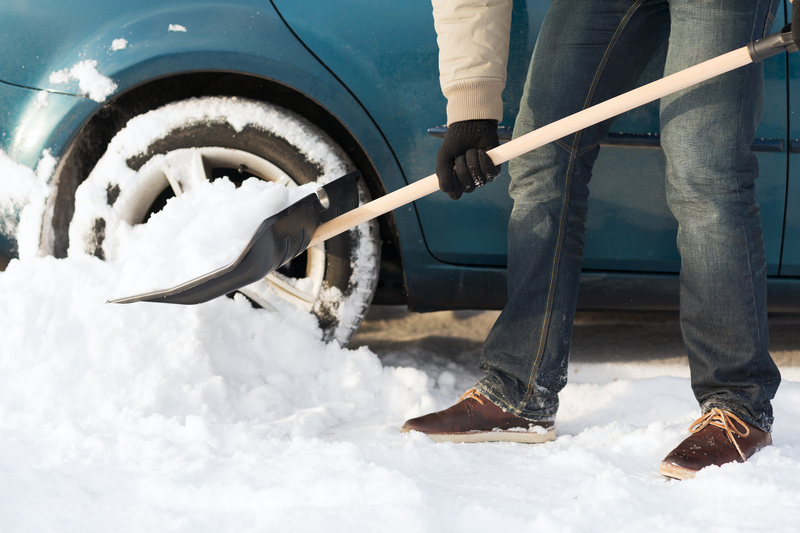Simple Solutions for Keeping a Freezer Safe During Storage Periods
Keeping your freezer safe during prolonged storage periods is essential for maintaining appliance longevity and ensuring food safety. If you need to store your freezer for weeks or even months--whether it's in a garage, storage unit, or basement--following some basic steps can prevent damage, odors, and costly repairs. This comprehensive guide will provide you with simple solutions and practical tips to keep your freezer in top condition during storage.

Why Proper Freezer Storage Matters
Storing a freezer incorrectly may result in issues such as mold growth, lingering odors, damaged gaskets, and even electrical problems. A well-maintained freezer will be ready to use whenever you need it, helping you avoid unnecessary expenses and stress.
Pre-Storage Preparations: Getting Your Freezer Ready
1. Thorough Cleaning
One of the most important steps in freezer storage safety is giving your freezer a deep clean. Cleanliness prevents unpleasant odors, mold, and bacteria from taking hold during the storage period.
- Unplug the freezer to ensure safety while cleaning.
- Remove all food items and allow the freezer to defrost completely. Use towels to soak up excess water.
- Wash all interior surfaces with a solution of mild soap and warm water. Avoid harsh chemicals that can damage the lining.
- Sanitize with baking soda (two tablespoons dissolved in a quart of water) to neutralize odors and bacteria.
- Dry thoroughly using a clean, absorbent towel. Leaving the freezer damp can lead to mold and mildew growth.
2. Defrosting Your Freezer
Defrosting is essential to prevent water from freezing and causing damage during storage. An accumulation of ice can harm the internal components and encourage mold.
- Turn your freezer off and leave the door open.
- Allow all ice to melt naturally, or place a pan of hot water inside to speed up the process.
- Wipe down interiors thoroughly once defrosted.
3. Inspecting for Damage
Before placing your freezer into storage, examine it for any signs of wear and tear or parts that need repair or replacement. Check seals, hinges, and electrical cords for cracks or frayed areas.
- Check door seals for flexibility and cleanliness; a damaged gasket can let in air and moisture.
- Look for rust or corrosion, especially around hinges and handles.
- Confirm that the power cord is intact.
- Address any minor repairs before storage to prevent worsening damage.
Safe Storage Locations: Where to Store Your Freezer
Choosing the right storage location is a vital part of keeping your freezer safe and functional. Environmental conditions can significantly affect the appliance's longevity. Here are a few options to consider, along with their pros and cons:
1. Indoor Storage
- Basement: Cool, stable temperatures are ideal for storage. Ensure the space is dry and doesn't flood easily.
- Utility Room or Spare Room: Clean and dry, often climate-controlled environments that minimize risk.
2. Garage or Shed Storage
- If storing in these spaces, protect your freezer from extreme temperatures and humidity.
- Consider using a cover or tarp to shield against dust and debris.
- Place the freezer on a pallet or blocks to elevate it from potential flooding or pests.
3. Storage Units
- Select a climate-controlled unit if possible, especially in regions with severe weather changes.
- Avoid stacking items on top of the freezer to prevent dents or damage.
Detailed Checklist: How to Keep a Freezer Safe During Storage
- Unplug and clean thoroughly: As mentioned previously, cleaning inside and out prevents odor and bacteria.
- Keep doors slightly open: Use a small wedge or towel to keep doors ajar, allowing air circulation and preventing mold growth.
- Remove or secure shelves and baskets: Take out components that can shift, or secure them to prevent movement.
- Cover with a breathable cloth: Protects against dust without trapping moisture that can cause rust or mold.
- Store upright: Always keep your freezer upright to avoid damaging the compressor and internal oil distribution.
- Label your appliance: Attach a tag to remind you that the appliance is clean, unplugged, and ready for storage.
- Check the storage area regularly: If possible, inspect your stored freezer every few weeks for signs of pests or moisture ingress.
Simple Maintenance Tips During Freezer Storage
Maintaining your freezer in storage isn't a "set-it-and-forget-it" situation. There are simple measures to optimize its safety and performance during prolonged non-use.
1. Protect the Exterior
- Wipe down all outer surfaces with a mild cleaning solution before covering.
- Regularly check for rust, especially if you live in a humid climate.
- Avoid plastic tarps that trap moisture; instead, use a breathable cotton sheet.
2. Preventing Unpleasant Odors
- Insert an open box of baking soda inside the freezer to absorb residual smells.
- Alternatively, activated charcoal or a handful of dry coffee grounds in a bowl can work wonders.
3. Keep It Dry
- Use desiccant packs or silica gel to minimize ambient moisture.
- Ensure no water remains in the drain pan (if applicable).
4. Pest Prevention
- Seal all food and remove from the area to avoid attracting rodents or insects.
- Check for gaps in the storage area where pests may enter.
What to Avoid When Storing Your Freezer
Mistakes during storage can lead to unnecessary wear and costly repairs. Avoid these common errors to ensure your freezer remains safe:
- Never store a freezer on its side: This can cause oil to leak from the compressor, seriously damaging the unit.
- Don't cover with impermeable materials: Avoid using plastic wrap that traps moisture; this encourages corrosion and mold.
- Don't neglect regular checks: Out of sight shouldn't mean out of mind--visit and inspect the freezer occasionally, especially after heavy rain or temperature fluctuations in your storage area.
How to Restart Your Freezer After Storage
After a period in storage, it's crucial to restart your freezer correctly to ensure safe operation and avoid damage.
- Move the freezer to its final location and ensure it's upright for at least 24 hours before plugging it in (especially if it's been tilted or moved aggressively).
- Give it a quick inspection for dust, pests, or water damage.
- Plug in and allow to cool for several hours before adding food.
- Listen for unusual noises and check for proper door sealing and cooling performance.
Common Questions About Freezer Storage Safety
Can I store a freezer outside?
Storing a freezer outdoors is generally not well-advised due to exposure to rain, humidity, rodents, and temperature swings. If you must, ensure it's heavily protected, covered, and off the ground.
Should I leave the freezer door open or closed in storage?
Always keep the door slightly open--this allows for air circulation and prevents mold and odor buildup. Use a rolled-up towel or a purpose-designed freezer wedge for this purpose.
How long can I store a freezer unused?
A freezer can remain safely stored for several months or longer, provided it is defrosted, well-cleaned, dry, and regularly checked for issues. There is no strict time limit with proper care.
Do I need to remove the doors for long-term storage?
Removing doors is not typically necessary, but for very extended periods or if storing near children or pets, it can eliminate safety hazards and ensure thorough ventilation.
Essential Supplies for Safe Freezer Storage
- Mild detergent, sponges, and towels (for cleaning)
- Baking soda or activated charcoal (for odor control)
- Desiccant packets or silica gel (for moisture absorption)
- Breathable covers or cotton sheets (for dust protection)
- Door wedges (to hold door ajar)
- Pallets or blocks (for elevating the freezer off the ground)

Eco-Friendly Tips for Freezer Storage
With modern environmental concerns, it's wise to employ sustainable practices when storing a freezer:
- Clean with natural solutions such as vinegar and baking soda.
- Reuse old towels, cloth covers, and organic desiccants.
- If you must dispose of an old freezer, follow local recycling protocols for large appliances.
Summary: Freezer Storage Safety Made Simple
A little preparation goes a long way in keeping your freezer safe during storage periods. By taking time to clean, dry, ventilate, and cover your appliance, you'll safeguard your investment and ensure it's fresh and ready for use at any time. Remember to inspect your storage location regularly and follow our simple solutions for the best results.
Are you ready to store your freezer safely? Follow these easy storage tips for your peace of mind!



